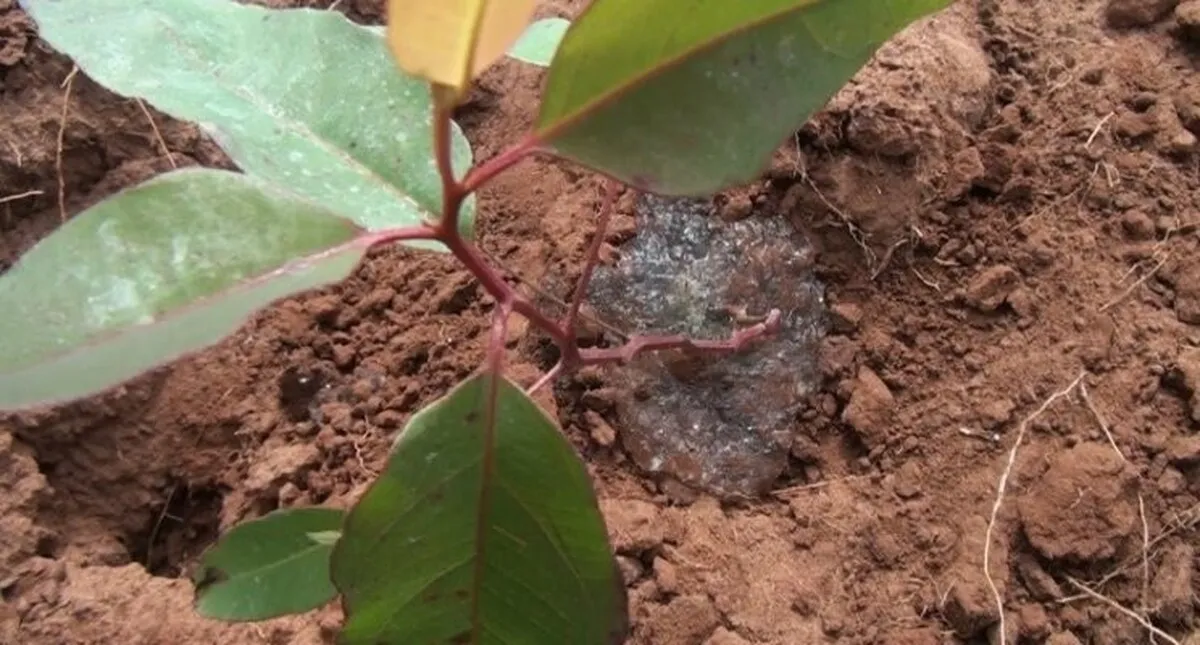Iranian Knowledge-Based Firm Fabricates Hydrophilic Agricultural Hydrogel to Fight Drought

“Agricultural hydrogel is a hydrophilic polymer that, even if it is under pressure, enjoys the capability to absorb and retain a lot of water and aqueous solutions. Its structure is also in such a way that it can absorb, maintain and provide the plant with the root needs in ionic conditions, pressure, and soil microorganisms for several years like a reservoir of water and soluble materials,” Samira Razani, the managing director of the knowledge-based company, told ANA.
Noting that nearly 300 grams to 450 grams of the hydrogel is enough for a tree and 6 grams to 8 grams for a flower, she said, “This hydrogel should be placed around the root of the tree in a swollen form. Then you should pour soil on them. They should be watered twice, then their dehydration phase can begin.”
“Today, many regions of Iran are in a water crisis. This hydrogel saves 50% of agricultural water. Also, the use of this product leads to the optimal use of chemical fertilizers and poisons and the prevention of underground water pollution,” Razani said.
In a relevant development in January, scientists at an Iranian company stationed at the incubator center of the Islamic Azad University’s Yazd branch had also managed to produce a special ‘hydrogel composite wound dressing’ which prevents amputation of organs in diabetic patients.
“The invention of hydrogel composite wound dressing has a code of human ethics and was tested in two specialized wound healing clinics in Yazd province for people with diabetic ulcers, EB (Epidermolysis Bullosa) ulcers, and bedsores and we obtained highly satisfactory results and quick healing in patients,” Mahboubeh Mahmoudi, the head of the board of directors of Aramis Yazd company, told ANA.
She noted that the product enjoys the capability to create moist healing conditions, release curcumin herbal medicine and cytokines and create regenerative growth factors in the wound site to increase the speed of healing.
“The hydrogel composite wound dressing which contains plant nanoparticles has proved effectiveness on increasing the speed of wound healing and treatment of all types of chronic wounds, improving the living conditions of patients with bedsores and preventing amputation of organs in patients with diabetic ulcers,” Mahmoudi said.
4155/v





















